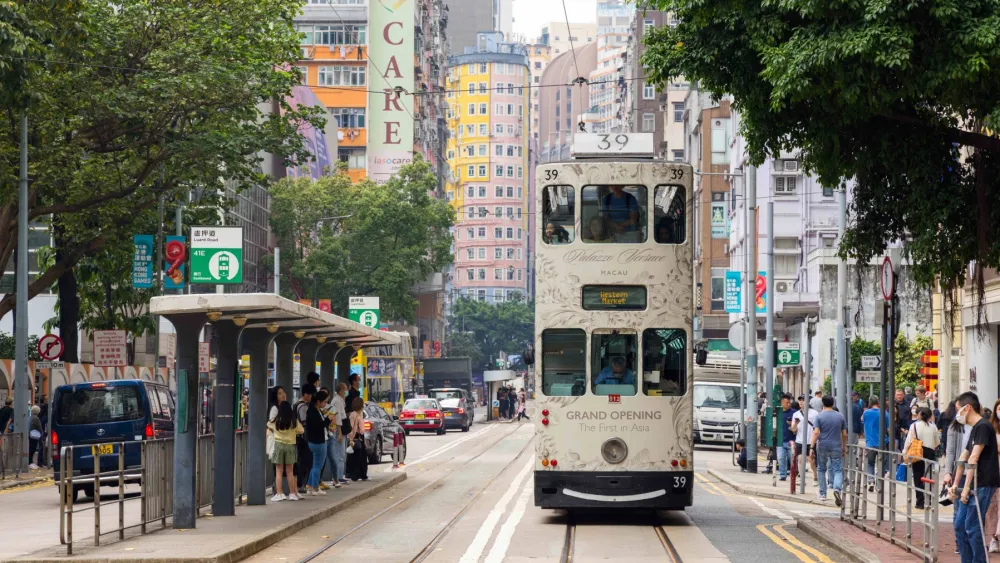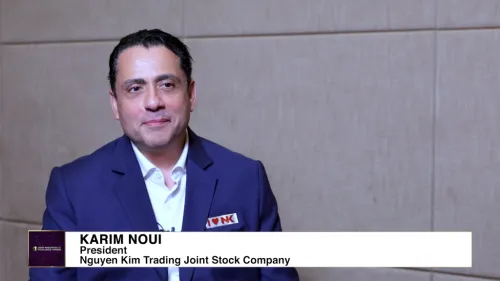
SingPost sees integrated 4PL platform and AI to reshape e-commerce logistics
SingPost’s logistics capabilities contribute 70% of its $1.9b revenue, according to CEO of International Business Li Yu.
Singapore Post Limited CEO for International Business, Li Yu has projected a huge potential in e-commerce growth in the Asia Pacific due to demands for faster, more flexible delivery options, and personalised delivery experiences.
To address this evolving demand, Li foresees the e-commerce logistics industry to be reshaped by autonomous guided vehicles, AI analytics, and generative AI.
SingPost has since transformed its business model through acquisitions in Australia such as FMH, which is a leading Fourth Party Logistics (4PL)player in Australia, together with their subsidiary, Couriers Please, which is a leading last-mile delivery service provider in Australia.
Since then, these logistics capabilities contributed to 91% of its total operating profit.
However, Li said the e-commerce industry will continue to face key challenges such as labour shortages, inflation, and ESG (Environmental, Social, and Governance)drivers.
To know the rest of SingPost’s e-commerce journey, here are Li’s insights and SingPost’s e-commerce strategy shared with the Singapore Business Review:
What are the current biggest challenges faced by postal companies globally?
All postal companies worldwide are impacted by the ongoing decline in traditional mail volumes caused by the rise of digital communication.
At SingPost, we have witnessed the decline, particularly over the last four years. Our Board recognised the need to transform years ago and we have since taken action to build and expand our e-commerce logistics business across the APAC region. I’m very happy to report that the group has achieved a record revenue of $1.9b, of which over 70% was contributed by logistics, compared to just 38% back in 2020.
However, the decline in our postal segment is a structural issue, which calls for a structural solution. Therefore, it’s important that we embark on a strategic review, stay focused, and pivot toward becoming a leading logistics service provider across the region whilst continuing with traditional postal duties.
How can a postal operator compete in the highly competitive logistics industry?
Over the last decade, the logistics industry itself has evolved significantly as technology advances, along with higher customer expectations that have accelerated over the pandemic period.
With the increasing demand, the majority of logistics service providers are faced with a multitude of issues as well as opportunities today. As a postal company within the Universal Postal Union (UPU), we have progressively pivoted to logistics.
Now, how do we do that? The first thing we did was to focus on digital investment, smart data analytics, and warehouse automation, and improving omnichannel logistics. All these can empower industry players to effectively handle inventory and fulfill orders seamlessly.
Through the utilisation of data analytics, real-time tracking and personalised cross-border delivery solutions, we have catered specifically to eCommerce sellers and marketplace providers.
Building on the success of our implementation of the 4PL model in Australia, we hope to also further enhance our digital capabilities and leverage the 4PL model as a supply chain orchestrator for our customers in the markets we serve. This will enable us to deliver comprehensive and integrated logistics solutions, catering to the unique needs of our clients.
Secondly, continue to look at infrastructure development. SingPost is continuously focusing on making postal services relevant and sustainable by working in tandem with the developing trends in e-commerce deliveries. We’re looking at infrastructure improvement being the element of delivery going forward. That helps not just to provide the customer experience, but also mitigate the cost increase as well.
Lastly, as a member of UPU, postal operators should work together to advance e-commerce delivery by collaborating with one another via our postal network — bilateral agreement, promoting international trade, and providing cost efficiency for our customers — these are the few things that we can do together to boost that competitiveness against other logistic partners in the world.
Many of the discussions with UPU have also helped shape major policy changes, mitigate potential disruptions, and explore areas of growth in the industry.
More importantly, it evolves around collaboration amongst the members to promote international trade, which I think is one of the key duties moving forward, to help us achieve competitiveness.
What emerging technologies do you think will have the biggest impact on the industry?
Some of the new technology that would greatly impact the industry include autonomous vehicles, generative AI, and AI-powered analytics. They are expected to bring about substantial transformation in the delivery sector.
Autonomous guided vehicles and drones hold the potential to streamline internal logistics within distribution centres and revolutionise last-mile delivery, leading to enhanced efficiency and cost-effectiveness.
AI-driven analytics enable optimisation of logistics operations, bolster demand forecasting, and enable real-time tracking and visibility. AI-powered chatbots and virtual assistants also play a significant role in enhancing customer service by providing instant support and personalised interactions. At SingPost, we are consistently driving innovation and exploring ways to implement these technologies to elevate our customer experience and improve operational efficiency.
What are the biggest opportunities/challenges facing the logistics/delivery sector in the near and mid-term future? What can be done to address these challenges?
The sector’s key challenges include labour shortages, inflation, escalating energy costs, ESG requirements, and evolving regulations. The magnitude and unique aspects of these challenges may differ across regions, and they will impact overall operations accordingly.
For leaders in the logistics industry, it is crucial to have a clear understanding of their long-term objectives, identify significant risks and opportunities, and make bold transitions from pursuing short-term gains to embracing resilience, trust, and ESG principles for sustainable growth. This includes implementing substantial measures such as aligning management performance with ESG metrics, enhancing workforce skills through upskilling initiatives, and making strategic investments in digitalisation to revolutionise their regional supply chains.
At SingPost, we constantly upskill our workforceand have invested in digitalisation to pursue integrated sustainability practices in everything we do. With our commitment to fleet electrification and resource efficiencies, SingPost is set to meet Net-Zero Scope 1 and 2 emissions in Singapore by 2030, and Scope 1, 2, and 3 emissions globally by 2050.
On the business front, we are focusing on building our transshipment hub and forging deeper partnerships across the supply chain, one of which is our recent MOU with SATS. I am thrilled and look forward to better-serving e-commerce flows and delivery into, out of, and within Asia, all with reduced delivery times alongside enhanced logistics solutions.


















 Advertise
Advertise







